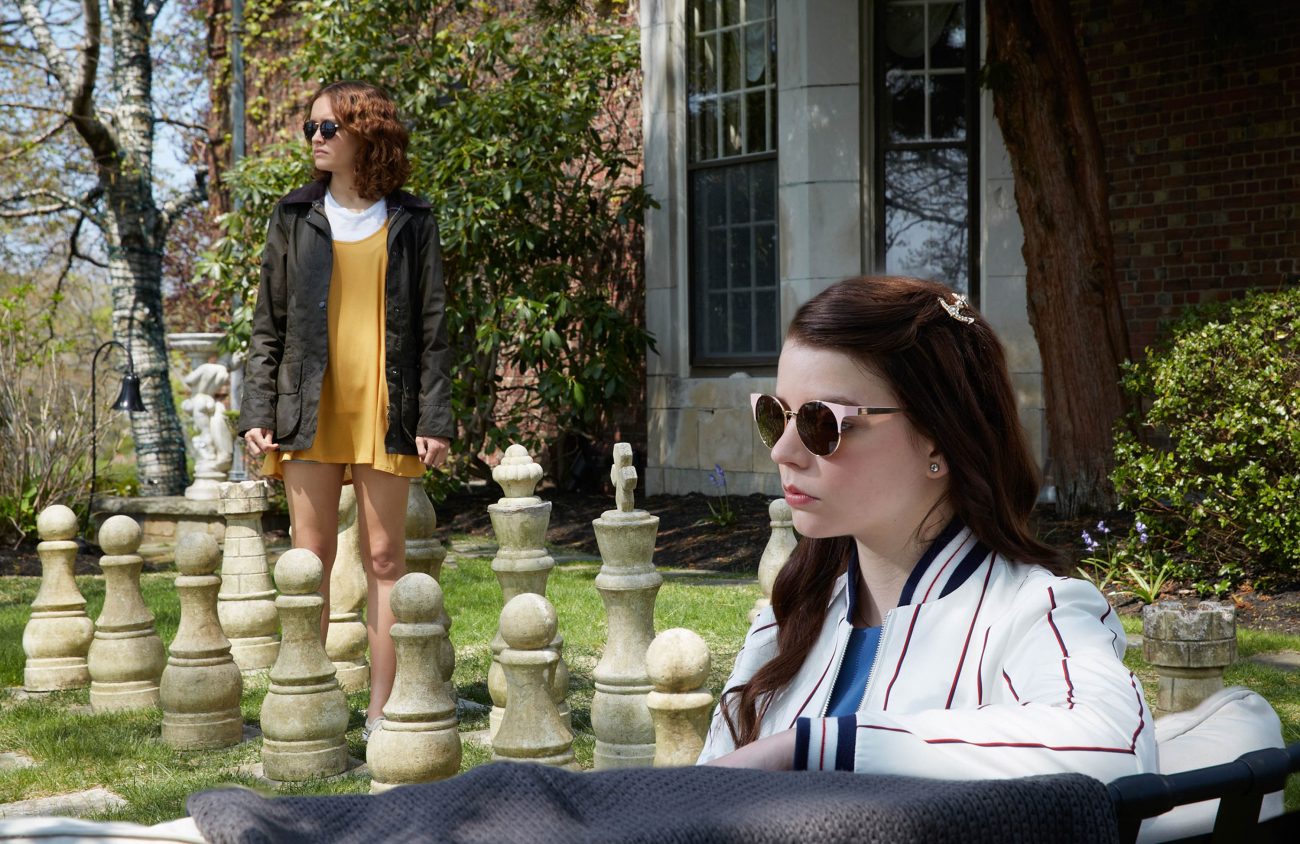What, exactly, is a sociopath?
Surprisingly, despite its widespread use these days as a term to describe everything from U.S. presidents to office colleagues, sociopath not an actual diagnostic designation. It’s a pop-culture label, like “fascist,” meant to indiscriminately indicate everything from “rotten son-of-a-bitch” to “soul-sucking monster.”
For people who lack empathy and all but a twitter of conscience, psychologists prefer to go with the term “antisocial personality disorder,” though sometimes “narcissistic personality disorder” seems to fit the bill.
It’s all so confusing. There’s so much evil in the world. How to explain it?
There is nothing particularly antisocial about Amanda (Olivia Cooke), the rich girl who befriends fellow rich girl Lily (Anya Taylor-Joy) in Thoroughbreds, the chilling debut film from writer/director Cory Finley. It’s just that Amanda has no feelings whatsoever — no joy, no anger, no nothing. She is pure intellect and imitation, as capable of coldly mirroring other people’s emotions as she is of robotically executing an injured horse with her bare hands.
Lily, on the other hand, is driven by unruly and unresolved emotions, the foremost of which is a slow-churning rage at her parents, and in particular her stepfather (Paul Sparks), a condemning über-asshole who — when he isn’t mechanically terrorizing Lily as an inconvenience to his steely upper-class lifestyle — spends hours upstairs on his rowing machine. If ever there were a poster boy for justifiable homicide …
Of course, Amanda — as casually as an afterthought — suggests as much to Lily, wondering aloud if she’s ever thought of killing her stepdad. Despite some resistance (on both their parts, mind you), the girls eventually hatch a plan, enlisting the tough-talking townie Tim (the late Anton Yelchin, in his final role) to break into the house with his gun and do the dirty while the girls are away securing their alibis.
Outwardly, Thoroughbreds follows the zig-zaggy course of a hundred film noirs before it, and as such it is satisfying if not entirely surprising — it functions as once as a devious, sin-infected crime thriller as well as a very dark satire, lampooning the empty consolations of wealth and privilege. It would fit as snugly into a double feature with American Beauty or Heathers as it would with Heavenly Creatures or Hitchcock’s Rope.
Two things take it over the top. The first is the cast, which is uniformly strong. It’s bittersweet to watch Yelchin dive so deliciously into the role of a small-time hood and wonder what might have been. And both leads are tops: Cooke, all eyeful observation and hyper-logic, does an amazing job at garnering empathy for a character utterly devoid of that quality, and Taylor-Joy takes a further step into a bright acting future after her breakout role as the eldest daughter in The Witch.
Most interesting, however, is the way writer/director Finley — a member of the Youngblood collective of under-30 playwrights — messes around with our ideas and expectations about what constitutes a sociopath. The bond that slowly develops between Lily and Amanda presents an unexpected fillip to our understanding of good and evil. Despite all the emotions being levied one side of the relationship, quite literally, their unlikely friendship is anchored not in murder but in platonic ideals like truth and sacrifice.
This is what makes the film so unsettling — and so invigorating. It inverts the formula laid down by cinematic characters from Norman Bates to Leopold and Loeb, forcing us to ask ourselves some hard questions. Can a “sociopath” be moral? How about more moral that a so-called well-adjusted person? What are emotions worth? What are the consequences of passion? Of rationality? Is morality itself merely an emotion masking some ultimate nihilism? Why do we do the things we do? ■
